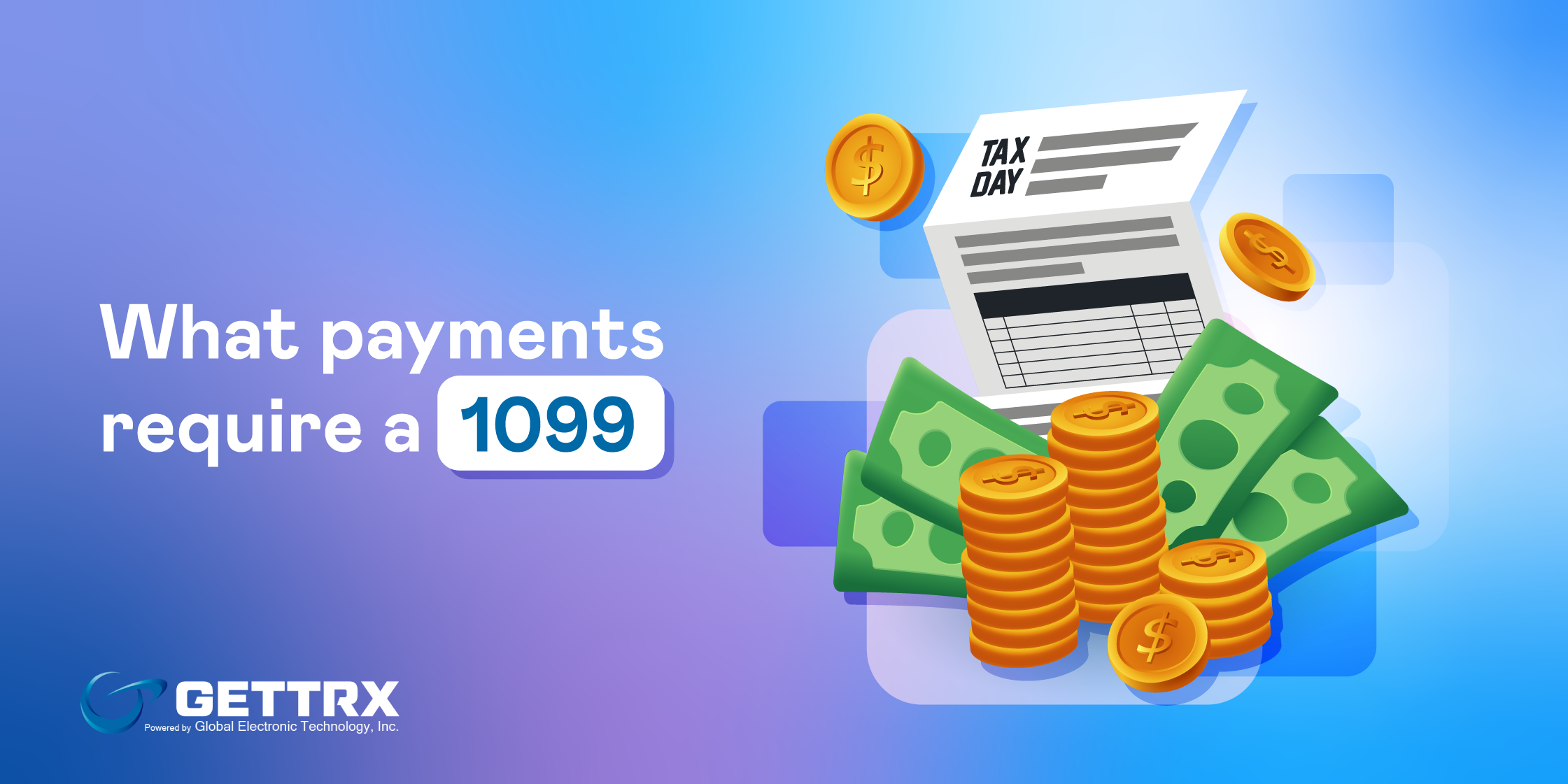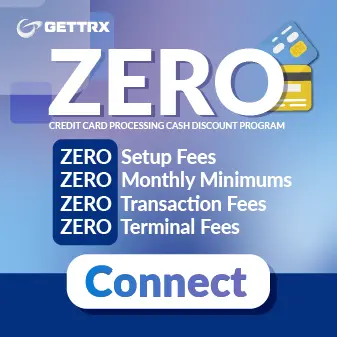Navigating the world of tax compliance can be challenging, especially when managing various types of 1099 forms.
This comprehensive guide will explore the importance of accurate 1099 reporting and provide the information you need to ensure your business stays compliant.
It will also dive into the details of 1099 forms and discuss deadlines and the consequences of non-compliance.
So, let’s get started!
Table of Contents
Key Takeaways
- 1099 forms are used to report various types of income to the IRS for tax purposes.
- The 1099-K form is used to report payment transactions settled through a payment card or third-party network transactions.
- Common 1099 forms include 1099-NEC (Nonemployee Compensation), 1099-MISC (Miscellaneous Income), and 1099-K (Payment Card and Third Party Network Transactions).
- Merchants need to send a Form 1099-NEC if they pay an independent contractor or freelancer $600 or more in a calendar year and the recipient is not a corporation.
- To fill out a 1099 form, provide payer and recipient information, enter the total amount paid, and submit the form to the IRS and recipient.
- Access 1099 forms on the IRS website or use tax software and online tools to manage filing.
- The deadline for most 1099 forms is as follows: The recipient copy is due January 31st; the IRS filing is due February 28th when paper filing or March 31st for electronic filing.
- Failure to file 1099 forms can result in fines, penalties, increased risk of an IRS audit, and damage to business relationships.
What is a 1099-K Form?
A 1099-K form, also known as the Payment Card and Third Party Network Transactions form is used to report payment transactions settled through payment card or third-party network transactions.
This form is typically issued by payment settlement entities, such as banks, credit card companies, or third-party payment processors like GETTRX, to report the gross amount of transactions processed on behalf of a merchant during a calendar year.
The 1099-K form is essential for merchants that process many transactions through payment cards or third-party networks. It helps the IRS track business income through these channels and maintains accurate tax records.
To help you better understand the 1099-K, let’s break down its essential components:
- Form title and purpose: The 1099-K is titled “Payment Card and Third Party Network Transactions” and reports income generated through payment cards or third-party networks.
- Payer information: This form section requires information about the payment settlement entity, including their name, address, and taxpayer identification number (TIN).
- Payee information: This section requires information about the business receiving the income, including their name, address, and TIN.
- Gross payment amount: This field reports the total income generated through a payment card or third-party network transactions during the calendar year.
- Number of payment transactions: This field reports the transactions processed during the calendar year.
Now that we clearly understand the 1099-K form, let’s move on to the other types of 1099 forms you may encounter in your business operations.
Types of Payments That Require a 1099 Form
Several types of payments may require the issuance of a 1099 form. Let’s explore the most common 1099 forms and the types of payments they cover.
A. Form 1099-NEC (Nonemployee Compensation)
This form is used to report payments made to independent contractors or freelancers. If your business pays an independent contractor or freelancer $600 or more in a calendar year, you are required to issue a Form 1099-NEC.
Examples of nonemployee compensation include fees, commissions, prizes, awards, or other forms of payment for services rendered.
B. Form 1099-MISC (Miscellaneous income)
The 1099-MISC form covers various types of income not reported on other 1099 forms. Some common examples include:
- Royalty payments: If you pay a person or an entity $10 or more in royalties, you are required to issue a Form 1099-MISC.
- Rent payments: Payments made to landlords for renting office space, machinery, or other equipment may require a Form 1099-MISC if the total amount paid exceeds $600 in a calendar year.
- Prizes and awards: Monetary prizes and awards of $600 or more may require a Form 1099-MISC.
C. Form 1099-K (Payment Card and Third-Party Network Transactions)
As discussed earlier, form 1099-K reports income generated through payment cards or third-party network transactions.
If your business processes over 200 transactions and pays more than $20,000 through third-party payment apps, you will receive a Form 1099-K from the payment settlement entity.
These thresholds may vary by state, so take note of your state’s specific requirements.
Who Needs to Send a Form 1099-NEC?
If your business meets the following criteria, you are required to send a Form 1099-NEC:
- Payment of $600 or more to an independent contractor or freelancer during a calendar year.
- The recipient is not a corporation, except for payments made to attorneys.
- The payment is made in the course of your trade or business.
Form 1099-NEC should not be used to report employee wages, as these should be reported on Form W-2. Additionally, if your business made payments to a corporation, you generally don’t need to issue a 1099 form, except for legal services.
How to Fill Out a 1099 Form
Filling out a 1099 form can be a straightforward process if you follow these steps:
- Obtain the appropriate 1099 form for the type of payment you are reporting. The IRS provides fillable forms on its website, which can be downloaded and printed for your convenience.
- Provide the payer’s (your) information, including name, address, and taxpayer identification number (TIN). This information can be found on your business tax documents or obtained from the IRS.
- Provide the recipient’s name, address, and TIN information. You can obtain this information from the contractor or vendor through a Form W-9, which they should complete upon entering a working relationship with your business.
- Enter the total amount paid during the calendar year in the appropriate boxes for each payment type. Be sure to double-check your records to ensure accuracy.
- Submit the form to the Internal Revenue Service (IRS) and provide a copy to the recipient. Depending on the type of 1099 form, there may be specific deadlines for submission.
Accessing 1099 Forms Online
You can obtain 1099 forms from the IRS website or utilize tax software and online tools to complete and file the forms. Remember that support from GETTRX includes access to invoicing and merchant dashboards that make reviewing your financial history easier and less stressful at times when you need to document important information.
Some popular tax software options that can help you manage your 1099 forms include:
- TurboTax: Offers a user-friendly interface and comprehensive tax support, including importing 1099 data directly from various sources.
- H&R Block: Provides step-by-step guidance for completing and filing 1099 forms and access to tax professionals for support.
- TaxAct: Offers a cost-effective solution for small businesses, with easy navigation and the ability to import data from various sources.
By leveraging these resources and GETTRX’s services, your business can efficiently manage its 1099 reporting obligations and maintain compliance with IRS requirements.
Due Dates and Deadlines for 1099 Forms
For most 1099 forms, the due date to provide a copy to the recipient is January 31st. The due date to file with the IRS is February 28th (paper filing) or March 31st (electronic filing). However, it’s essential to check the specific deadlines for each type of 1099 form to avoid penalties.
Here’s a quick overview of the deadlines for common 1099 forms:
- Form 1099-NEC: Recipient deadline – January 31st, IRS deadline – January 31st (paper and electronic filing)
- Form 1099-MISC: Recipient deadline – January 31st, IRS deadline – February 28th (paper filing) or March 31st (electronic filing)
- Form 1099-K: Recipient deadline – January 31st, IRS deadline – February 28th (paper filing) or March 31st (electronic filing)
Remember that if a deadline falls on a weekend or holiday, the due date will be the next business day.
Consequences of Not Filing 1099 Forms
Failure to file 1099 forms can result in fines and penalties, which vary depending on the type of form and the extent of the non-compliance. In addition, non-compliance can impact your business reputation and relationships with contractors, vendors, and other stakeholders.
Some potential consequences of not filing 1099 forms include:
- Penalties: The IRS imposes penalties for failure to file 1099 forms or filing them late, with fines ranging from $50 to $270 per form, depending on the lateness. These fines can add up quickly, especially for businesses with multiple contractors or vendors.
- Audits: Failure to file 1099 forms can increase the risk of an IRS audit, which can be time-consuming, stressful, and costly for your business.
- Damage to business relationships: Non-compliance with 1099 reporting requirements can harm your business’ reputation and strain relationships with contractors and vendors, potentially leading to lost opportunities and decreased trust.
See related post: Risks of Becoming Your Payment Facilitator.
Conclusion
Understanding the 1099 forms and reporting requirements is essential for maintaining tax compliance. By staying informed and utilizing resources like GETTRX’s services, your business can avoid fines and penalties while fostering solid relationships with your contractors and partners.
As a business owner, stay up-to-date on tax regulations and ensure you accurately report all necessary information to the IRS. By doing so, you not only protect your business from potential legal and financial consequences but also contribute to a smoother and more efficient tax filing process.
Remember, managing your 1099 forms doesn’t have to be daunting. With the help of tax software, online tools, and services like GETTRX’s Zero and Flat Rate packages, you can easily keep up with the details of your business, which will help you streamline your reporting process and maintain tax compliance.
See GETTRX’s merchant agreement.







